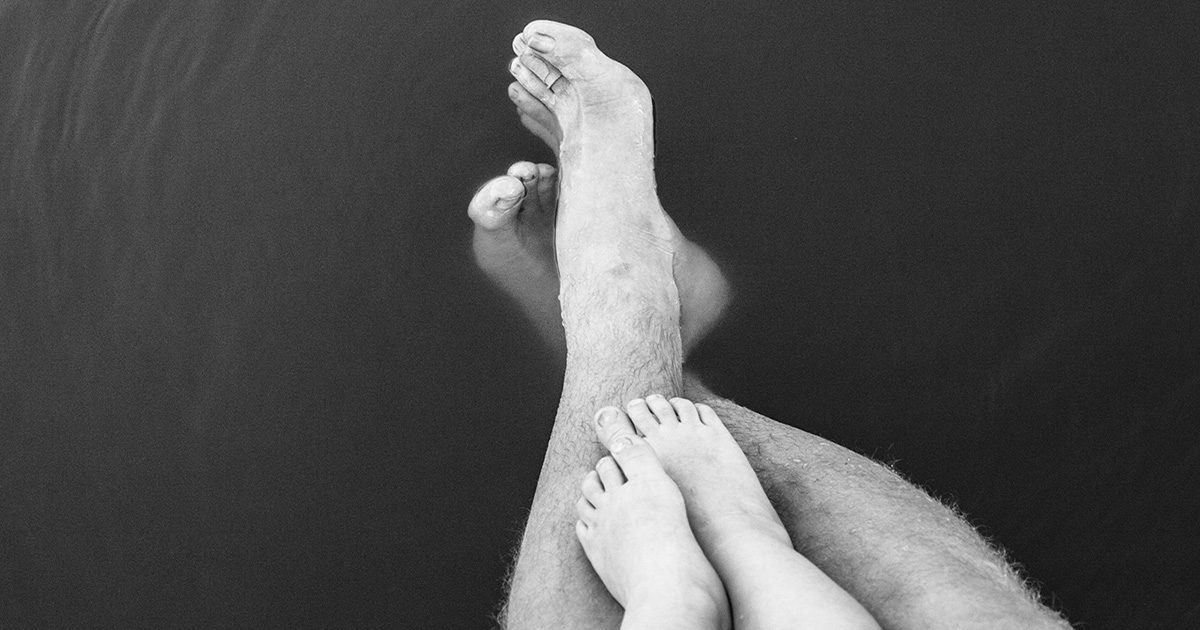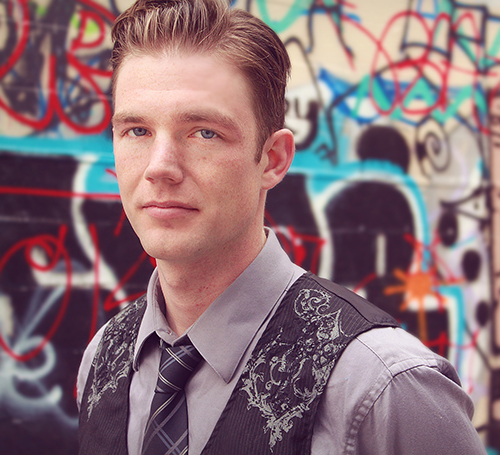THE OTHER FATHER
★ ★ ★ ★
ON BEING A REAL DAD

By James Prenatt
Part of being a parent is faking it. We fake enthusiasm. We fake patience. We fake our energy and act excited to play with our kids and go places with them when we really just want to lie down and nap. We lie often because it’s easier than explaining the truth. It’s just part of the job and everyone has to do it. I think part of being a parent is feeling like a fraud. When do we feel like a parent? Or is it something we just are? We hear the words “real dad” or “real mom” often used to refer to someone who is a good parent. Real dads help out around the house, real moms take their kids to soccer, etc. A real parent can also refer to biological parent, which makes stepparents the biggest frauds of all.
But what makes a stepparent any different? The answer is, not much. The difference is how you feel. Biological parents will always have a different sense of ownership while stepparents may not. They’ve known their child longer and have seen them grow from the start. That is my kid, they will always be able to say. But that doesn’t mean they function any differently. You’re just made to feel off because you’re the other, not the primary.
I used to say to my wife that I felt nothing I did counted. Sometimes I didn’t say it bitterly, I said it humbly because I couldn’t accept praise just yet. I couldn’t accept that I was taking on the role of a parent. I wasn’t faking anything, I was just doing it. It didn’t help that once he learned what I was, that I was his stepdad, he also realized what I wasn’t. I wasn’t his dad.
When I pick him up from school, his friends say “Your dad’s here.”
He corrects them, sometimes angrily, “That’s not my dad, that’s my stepdad.”
The distinction is important to him, as titles and names always are to children, maybe even more so than as adults. It can hurt sometimes, but at least he recognizes me as a parent. I’m lucky to have him as young as I do. I met him before he turned three. He will always remember me and I don’t have to worry about him seeing me as an imposter, someone stepping into his life and trying to take on the role of father.
Along with worrying about being the real father, I worry about being a real man. Every man does, especially in an age where gender is evolving so fluidly that calling yourself a man is more important than defining what a man is. I think this evolution is great, because at some point I’ve always felt like I didn’t fit into the archetypal male, but I’ve been able to blend in just as well.
What’s a real man do with his son? Do they camp, fish, play ball (all things I don’t do), or do teach them to read, write, and talk about art? My dad was a carpenter, a computer programmer, and someone who wasn’t particularly athletic or enjoyed sports, but liked being active. He was manly and tough at times, sensitive and kind during others. He could be hard on us, especially if we defied the things that he valued, among them, family, humility and good manners. He kept us in check and came down hard when he needed to, but his temper was never a constant thing we had to deal with. He was not filled with rage like so many other men are. He was caring of our pain and never told us to suck it up.
My grandfather also raised me. We lived on a farm next to him and my grandmother and spent a lot of time together. He came from a different generation, one where a man was a man and you didn’t talk about your problems. He was the CEO of an insurance company, a conservative and highly successful man who prized money-making over creative endeavors. He was terse, stern, and short-tempered. He took us on road trips to museums, vacations in the Cayman Islands, and was always excited to have us help out on the farm. He was like a coin you could flip to either side: one was fun and concerned, the other was angry and disapproving.
Most of the time when I think about these two fathers, I don’t feel too critical. I think about the good parts of them, how they were both two different types of men. Most of the time I find myself lucky to have had their influence. I see it come out in me as a parent. I talk similarly and use the same tones. I have to keep myself in check. I sometimes get angry at him for crying and then have to tell myself that he’s just a kid, he’s going to cry and that’s okay. He’s going to get scared at night and while it might seem silly to me, it’s not silly to him.
I’m thankful for their influence because it taught me both what to do and what not to do. I think most people fall into two, detrimental extremes: they do everything they can to not be like their parents or they do everything the same way their parents did. I think it’s good to fall somewhere between. It’s okay to want to be like your dad because he’s what you thought a man was. It’s not okay to feel like you have to be like him. We all pick up good and bad traits, but I think ultimately the good traits shine above the bad ones.
Being a man doesn’t have to be defined by what it is not, or what other people tell you it is. The same goes for being a parent. It should be up to you to decide for yourself what it means. If there is anything I have learned is that it’s not my job to teach my stepson how to be a man. It’s not my job to tell him what a man is and it’s not anyone else’s job to tell me whether or not I’m a parent. I know what I am, even if sometimes I don’t feel like it. I’m a parent. I’m a man. I’m a stepdad. As for my stepson, he’s whatever he wants to be.

James Prenatt lives in Baltimore, MD with his beloved wife and stepson, who tells lovely stories about bunnies and crabs. He writes fiction and poetry along with contributing to blogs such as Everything for Dads and Parent.co. He likes punk rock, good movies, and bad coffee.























